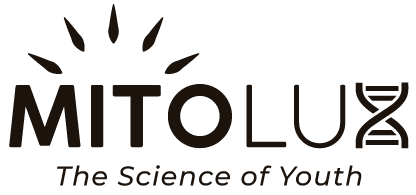Vitamin D, often fondly termed the 'sunshine vitamin', is central to our well-being, playing a crucial role in a host of physiological processes. Its importance in ensuring bone health, bolstering immunity, and even in mood modulation is becoming increasingly evident. Yet, alarmingly, vast portions of the global populace are found to be deficient in this essential nutrient. This paints a concerning picture, urging us to delve deeper into the myriad benefits of Vitamin D, the rampant deficiency, and the superiority of natural Vitamin D synthesis.
Vitamin D: More Than Just A Vitamin
Guardian of Bones: Vitamin D facilitates calcium absorption in the intestines, a process pivotal for bone mineralization. A deficiency can lead to softening of bones, termed osteomalacia in adults and rickets in children1.
1 Holick, M. F. (2007). Vitamin D deficiency. New England Journal of Medicine, 357(3), 266-281. Direct link
Immune System's Best Friend: Vitamin D modulates both innate and adaptive immune pathways. A deficiency doesn't just heighten susceptibility to infections, but also autoimmune diseases2.
2 Aranow, C. (2011). Vitamin D and the immune system. Journal of Investigative Medicine, 59(6), 881-886. Direct link
A Beacon of Mental Well-being: Studies increasingly link Vitamin D to mental health, suggesting its role in protecting against conditions like depression and possibly even schizophrenia3.
3 Anglin, R. E. S., et al. (2013). Vitamin D deficiency and depression in adults: systematic review and meta-analysis. The British Journal of Psychiatry, 202(2), 100-107. Direct link
Cardiovascular Shield: Emerging evidence also points to the protective effects of vitamin D against cardiovascular diseases7.
7 Wang, L., et al. (2012). Circulating 25-hydroxy-vitamin D and risk of cardiovascular disease: A meta-analysis of prospective studies. Circulation: Cardiovascular Quality and Outcomes, 5(6), 819-829. Direct link
The Global Vitamin D Crisis
Worryingly, Vitamin D deficiency is not limited to a specific demographic or region – it's a worldwide concern. In parts of Europe, for instance, over 40% of individuals are deficient, with numbers being equally grim in North America and other parts of the world4.
4 Cashman, K. D., et al. (2016). Vitamin D deficiency in Europe: pandemic? The American journal of clinical nutrition, 103(4), 1033-1044. Direct link
Why are so many of us deficient?
- Indoor Living: Urbanized living means more time indoors and less time soaking up the sun.
- Sunscreen, A Double-Edged Sword: While sunscreen is essential to prevent skin cancer, it inhibits Vitamin D production by blocking UVB rays.
- Geographical Disadvantages: People living in northern latitudes or places with less sunshine have decreased potential to produce vitamin D.
- Dietary Shortcomings: Naturally occurring vitamin D in food is rare, and while some foods are fortified, they often don't suffice.
Nature's Way: Sunlight Over Supplements
Vitamin D supplements have soared in popularity, yet sunlight remains the most efficient and effective source:
- Prolonged Benefits: Sun-induced vitamin D production results in a form that's stored in body fats and released over time, unlike the transient effects of supplements5.
- Safety First: The risk of vitamin D toxicity from sun exposure is virtually nil. Our skin has a feedback loop that curtails the conversion of vitamin D, ensuring we don't overproduce. In contrast, excessive supplemental intake can lead to hypercalcemia6.
- Whole-body Response: Sun exposure doesn't just promote vitamin D synthesis; it triggers a holistic response, producing other beneficial compounds like beta-endorphins, the 'feel-good' molecules.
5 Slominski, A. T., et al. (2013). The role of CYP11A1 in the production of vitamin D metabolites and their role in the regulation of epidermal functions. Journal of Steroid Biochemistry and Molecular Biology, 137, 61-66. Direct link
6 Jones, G. (2008). Pharmacokinetics of vitamin D toxicity. The American Journal of Clinical Nutrition, 88(2), 582S-586S. Direct link
In Conclusion
Vitamin D is undeniably vital. As the world grapples with a deficiency epidemic, it's imperative to appreciate the broad spectrum of its benefits and champion its natural synthesis. Basking in the sun's gentle rays, even for a short duration daily, can be a simple yet transformative health choice. The sunshine vitamin indeed holds the promise of brighter health and well-being!


